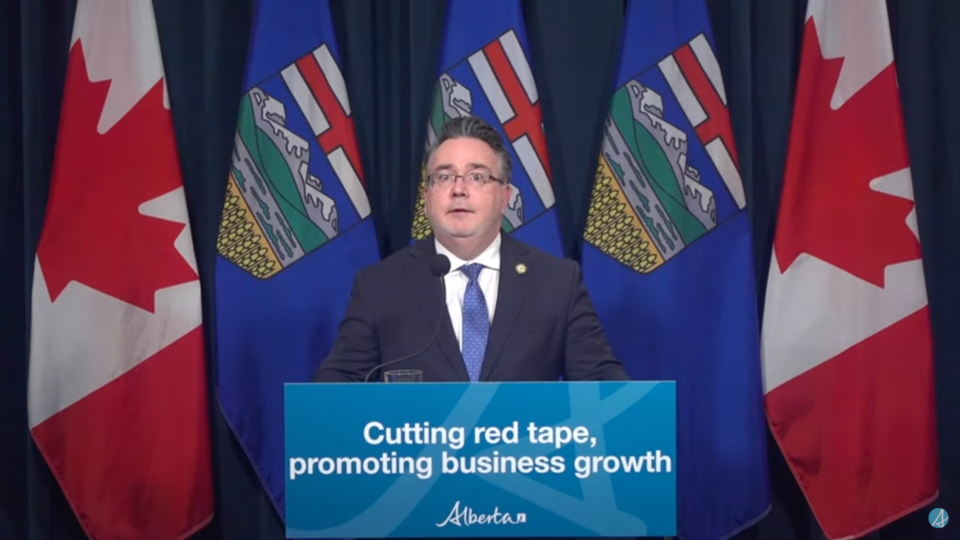Alberta continues to win favour with the Canadian Federation of Independent Business, this year notching its second consecutive full A grade atop the organization’s Red Tape Report Card.
A highlight of CFIB’s Red Tape Awareness Week, the report card dropped as the province promoted a new approach to permit approvals. The “automatic-yes toolbox” streamlines and fast-tracks approvals by eliminating some permits entirely and setting a countdown clock on others.
The framework announced Jan. 28 became operational immediately. It spans 16 ministries and is part of an Alberta government program of red tape reduction that stems from 2019’s Red Tape Reduction Act.
Automatic-yes also earned the province a “one to watch” acknowledgement in CFIB’s Golden Scissors Awards.
“To go from a jurisdiction that was getting F's from the CFIB to one that is now recognized as a leader, not just in Canada but in North America, is something we're particularly proud of,” said Dale Nally, the minister of Service Alberta and red tape reduction.
Alberta’s cabinet is keeping “the culture of red tape reduction alive and well,” said Nally.
The province leads Canada in red tape reduction with a score of 9.5 out of 10 in the 2025 report card, the CFIB announced. The province also topped the report card in 2024 with a 9.4 rating and an A grade.
In 2023 Alberta edged out Ontario with 8.8 for an A minus grade. Before that, Alberta earned an A minus in 2022 and a B minus in 2021, both times finishing second in the ratings system to Manitoba.
But Manitoba has tumbled from the CFIB’s favour for spiking its Red Tape Accountability Act, this year receiving an F grade and a Paperweight Award – not a good thing – for what the CFIB classifies as red tape mismanagement.
The governing Conservative party in Manitoba was relegated to opposition status by voters in 2023, who chose the NDP instead.
The 2025 grades were mostly based on regulatory accountability and burden, and political priority. A small bonus was attached for housing initiatives.
CFIB says red tape is the source of stifling costs and wasted time for Canadian businesses. In 2024, the average small business owner lost the equivalent of 32 business days “wrapped up in red tape,” says the seventh edition of its Red Tape Report, also released in January.
The report pegs at $51.5-billion the combined cost of municipal, provincial and federal regulation to Canadian businesses. About 35 per cent or just under $18-billion of that was spent on red tape. Businesses of all sizes spent 768 million hours on regulatory compliance in 2024, which works out to nearly 394,000 full-time jobs.
The smallest businesses in Canada bear a disproportionately high burden of the cost, paying up to five times more per-employee than larger businesses, says the CFIB. Regulation cost businesses with fewer than five employees an estimated $10,208 each in 2024, and $3,839 of that was for red tape — the work that can, in the CFIB’s judgment, be eliminated.
CFIB used its own surveys and Statistics Canada to arrive at the data.
Canada’s largest association of small and medium-sized businesses, the CFIB has 100,000 members across every industry and region. It is “dedicated to increasing business owners’ chances of success by driving policy change at all levels of government, providing expert advice and tools, and negotiating exclusive savings.”



